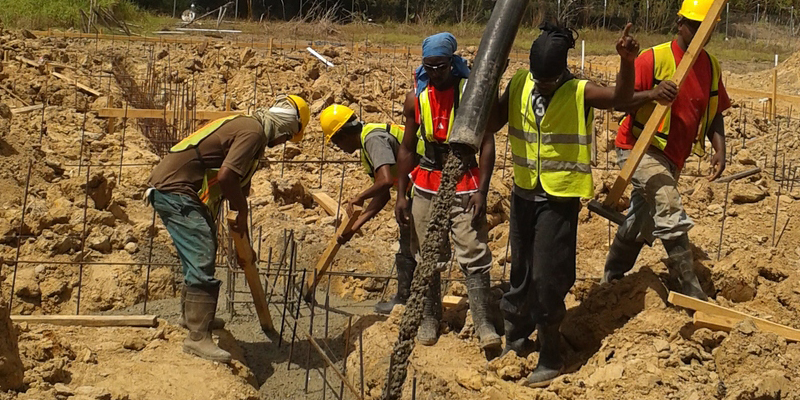
 |
| Trinidad eyeing IBC to get ahead of "Wild West" mentality. |
 |
| Many people likely would be surprised to learn the tiny, south Caribbean island of Trinidad is a relative industrial giant, a significant world player in oil and natural gas, but lacks official building codes or enforcement. |
| Many people likely would be surprised to learn the tiny, south Caribbean island of Trinidad is a relative industrial giant, a significant world player in oil and natural gas. Jay Woodward, senior staff architect with ICC's Business Development Department, was shocked to hear that with all that industry, Trinidad has no official building codes or enforcement. "I am surprised you can have a large, robust city of a million and a half or so and then realize there is no code enforcement required," said Woodward, who got a tour of the island's Industrial Estate during the recent 2014 World Technology Seminar. His portion dealt with International Building Codes, specifically those dealing with firestop issues. Also presenting were Curtis Mundaroy of Trinidad & Tobago Fire Services, Sean Younger of Carboline Global and Bill Mifflin of ISOLATEK International. A main focus of the entire seminar was making sure the 140 contractors, architects and government officials in the audience knew it was important to have sprinkler systems installed with firestop, not either or. That was something Nicholas Adams wanted to stress when he organized the seminar. Managing Director of Alltrin Ltd., a firestop company in Trinidad, Adams is helping the island country adopt building codes, using the International Building Code as a model. Adams said many of the main industrial buildings reference the I-Codes and are reasonably safe. "But for the low-income, multi-family complexes," he said, "there is nothing. That's where it falls down." Also troubling is the fact there is no code enforcement in Trinidad. "There really has been nothing done with codes since the British pulled out in 1962. It's kind of like the Wild West," Adams said. "It's 'Do whatever you want.'" The movement to adopt building codes is tied not only to increased safety but to bring Trinidad up to First World standards, Adams said. The goal is to have them in place by October 2015. "That's why we wanted to bring in the ICC personally to explain the need for the codes as well as enforcement," Adams said. "Jay helped us do that." Woodward talked about what the code provides for firestop and sprinklers, as well as the why and the how to implement. He saw that for himself in the tour of the Industrial Estate and by seeing the number of high-rises built with steel forged in Trinidad. Even though many architects and contractors are familiar with the I-Codes by working in the U.S. Virgin Islands, Woodward said, there was a lot of unknown in that room during the seminar. What couldn't be answered during a 20-minute question-and-answer session, he tried to do in follow-ups with government and fire officials afterward. Adams said the feedback from the seminar was strong enough to consider holding more on other code topics for specific industries. And even more importantly, he said, the Trinidad code adoption committee continues to meet to work out the plan for implementation. For his part, Woodward said helping officials in Trinidad adopt the IBC isn't much different from the resources ICC provides to people here in America who also are interested in adopting solid, enforceable building codes. "Trinidad has a lot of nice commercial and industrial buildings that are pretty much OK according to the codes," he said. "But a lot of them also are just kind of out there without knowing they were constructed to any specific code. It's good officials in Trinidad are trying to get out ahead of this." |
Share this story:    |